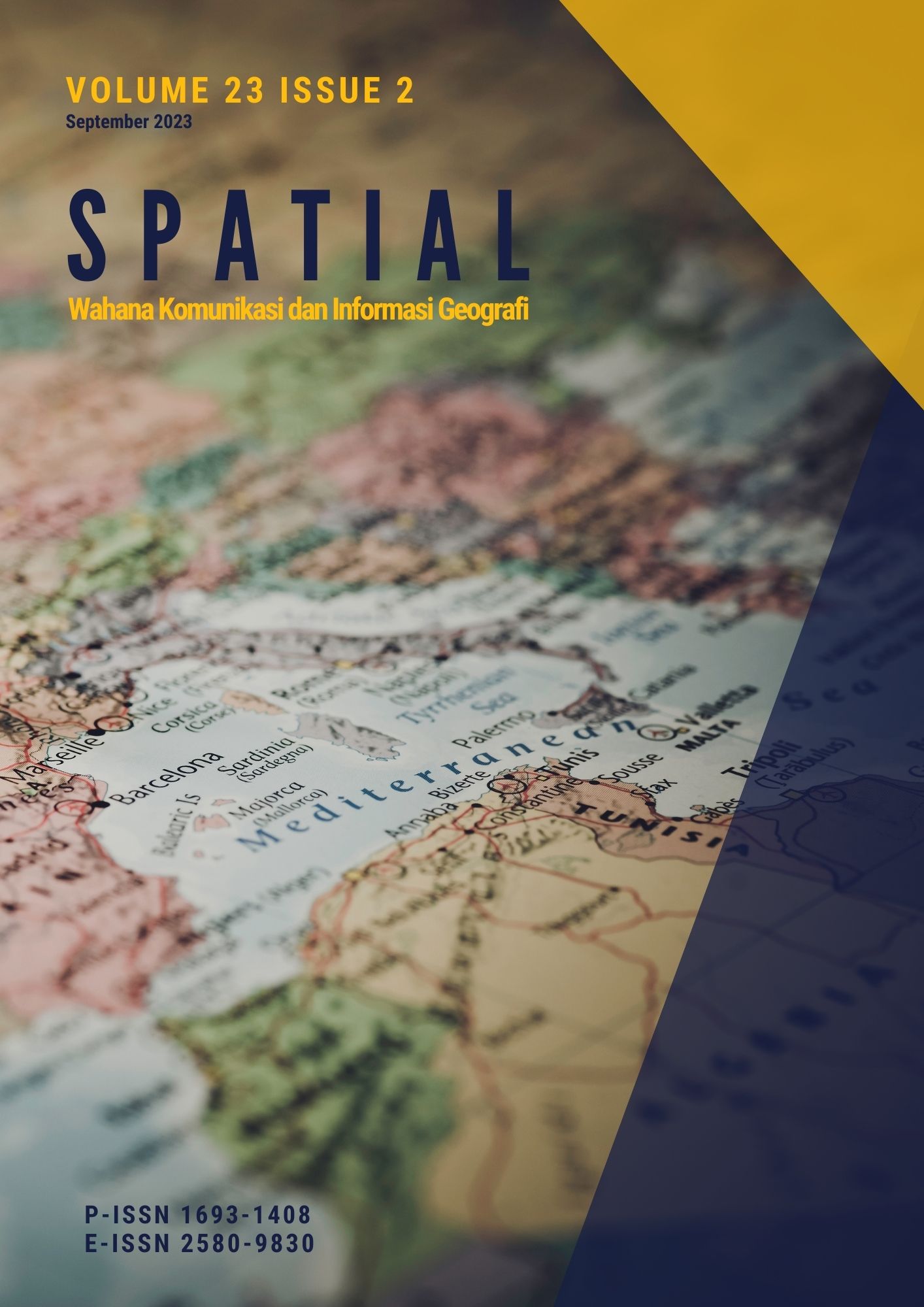Model Learning by Doing terhadap Kemampuan Literasi Bencana Konteks Gempabumi di MTS Negeri 1 Pulau Morotai
DOI:
https://doi.org/10.21009/spatial.232.08Keywords:
learning by doing, disaster literacy, earthquakeAbstract
Morotai Island has a high earthquake hazard potential, but it is not matched by high regional capacity in disaster management. Areas with high potential hazards and vulnerable community conditions have a high potential for disaster risk. So it is necessary to do Disaster Risk Reduction (DRR) from all sectors, one of which is through education by increasing disaster literacy. The purpose of this study was to determine the effect of the learning by doing model on disaster literacy skills in the context of the earthquake at MTs Negeri 1 Morotai Island. The research approach used a quasi experiment design with a pretest-postest control group experiment design. Data analysis with parametric statistics for hypothesis testing is analysis of covariance (Anacova) using SPSS 22 for windows with a significance level of 0.05 which was previously carried out Normality test and Homogeneity test. The results of this study indicate that there is a difference in the effect of learning between the learning by doing model and conventional learning on disaster literacy skills in the context of the earthquake with a Sig value. 0,00.
Downloads
Published
How to Cite
Issue
Section
License
Copyright (c) 2023 Risky Amelia, Hasmawati, Marwis

This work is licensed under a Creative Commons Attribution 4.0 International License.
An author who publishes in the journal SPATIAL Wahana Komunikasi dan Informasi Geografi agrees to the following terms:
Author retains the copyright and grants the journal the right of first publication of the work simultaneously licensed under the Creative Commons Attribution 4.0 License that allows others to share the work with an acknowledgement of the work's authorship and initial publication in this journal
Author is able to enter into separate, additional contractual arrangements for the non-exclusive distribution of the journal's published version of the work (e.g., post it to an institutional repository or publish it in a book) with the acknowledgement of its initial publication in this journal.
Author is permitted and encouraged to post his/her work online (e.g., in institutional repositories or on their website) prior to and during the submission process, as it can lead to productive exchanges, as well as earlier and greater citation of the published work (See The Effect of Open Access).
This work is licensed under a https://creativecommons.org/licenses/by/4.0/









